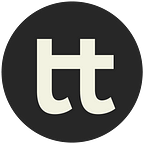Think tanks: Global reach, global perspectives
Organised by Christopher Rastrick (University of Western Ontario, Canada) and Donald Abelson (Brian Mulroney Institute of Government and St. Francis Xavier University)
Speakers: Heidi Ullrich (ICANN), Karlyn Bowman (American Enterprise Institute), and Nana de Graaf (Vrije Universiteit Amsterdam)
Summary
With the recent release of the ‘Handbook on Think Tanks in Public Policy’, join several of the ground-breaking authors in exploring key discussions and debates within the think tank literature. Furthermore, this session will explore both practitioner and scholastic approaches to situating these organisations in the highly volatile and generation-defining public policy context of recent years. Hosted by the handbook’s editors, Don Abelson and Chris Rastrick, this session will take stock of the current discourse on think tanks, but will also offer ideas on where the literature could (or perhaps should) head.
Nana de Graff:
Nana’s chapter is not so much interested in think tanks but more about policymakers and their networks. They are embedded in social networks and this influences the decisions they make. For instance, she found a network of top policymakers going back to the Clinton administration who were extensively linked to a particular think tank. There is a group of core think tanks who are recurrently linked to the administration, so she wanted to study think tankers not just as policy ‘planners’ but also as future policy ‘makers’.
She also finds a huge disconnect in the Trump administration between policymakers and the think tanks that had been influencing policy earlier, as Trump brought in outsiders.
Heidi Ullrich:
Heidi’s chapter is about supranational think tanks in Brussels. She drafted a typology of activities (research, debate, network, and innovative tools) conducted by these think tanks, and studied the treaties that were signed and the crises that affected the EU.
Karlyn Bowman:
Karlyn’s chapter discusses AEI evolution through four presidents, now the fifth. Presidents have had a unique eye for talent and have stayed remarkably true to their mission. She discusses how the media environment has changed dramatically in the last 20 years. Another important change is that while before think tanks like AEI were mostly interested in influencing the elite, now they want to reach wider audiences. This has led to a growth in communications teams that promote the work of the think tank. Another change is that it has become harder to obtain funds from corporations or large donors, so there has been a growth of resource mobilisation teams dedicated to fundraising.
From the chat box
Is it that when politics seem to be NOT based on evidence the public looks for think tanks to help them make sense of what is going on? Or when there are crises?
I think I read in Joseph Braml’s work that he talked about intellectual autonomy rather than independence — because of course nothing is entirely independent.
Question: Looking into the future, some think tanks are now huge. Is this sustainable across the board from a funding perspective?
Resources and references
Jill Rutter talked about this in this article on Brexit and the role of the Institute for Government
More on think tanks and change
From think tank to change hub
Keynote by Anne-Marie Slaughter, CEO of New America
How do think tanks react to or foster change?
Read the OTT Annual Review 2020–2021
